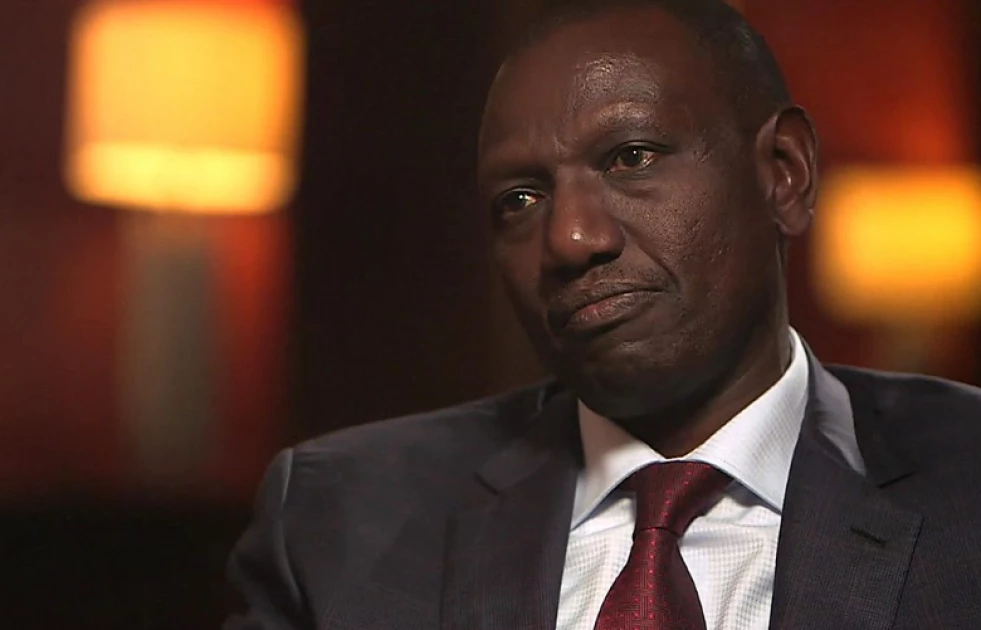Kenyans split on Raila’s 2027 role as 68pc of oppose Ruto's re-election-TIFA Survey

President William Ruto during a past interview with the BBC. PHOTO | COURTESY

Audio By Vocalize
The poll, conducted between August 23 and September 3 among 2,024 adults across all 47 counties, shows that only 32 per cent of Kenyans expect or support Ruto’s re-election in 2027.
At the same time, 23% want Odinga to rejoin the opposition and run for president, 17% want him to support another opposition candidate, and 14% believe he should retire from politics entirely.
TIFA, in the poll released Wednesday, describes Odinga’s political brand as being 'at a crossroads'.
Once firmly defined as the face of the opposition, his cooperation with Ruto in the so-called Broad-Based Government (BBG) has left Kenyans divided over his next move.
The BBG arrangement — forged after Ruto backed Odinga’s failed bid for the African Union Commission chair and subsequently appointed several ODM allies into government — has been met with sharp criticism.
Nationally, only 29 per cent of Kenyans support the BBG, while 64 per cent oppose it.
Opposition is strongest in Mt. Kenya (83 per cent) and Lower Eastern (75 per cent), regions tied to former deputy president Rigathi Gachagua and Azimio co-principal Kalonzo Musyoka respectively.
Among those who oppose the arrangement, 37 per cent dismiss it as a pact serving the personal interests of the two leaders, 27 per cent believe it undermines democracy by weakening the opposition, while 17 per cent argue it fails to address development needs.
Smaller proportions cite corruption and human rights concerns.
When asked about the likelihood of the opposition uniting behind a single candidate to face Ruto in 2027, Kenyans were almost evenly split: 32 per cent believe unity is 'very likely,' 26 per cent said it is 'somewhat likely,' while 30 per cent doubt such cohesion will materialize. Nine per cent remain uncertain.
Interestingly, perceptions on opposition unity mirror positions on the BBG.
A third of Broad Based Government supporters expect unity, compared to 35 per cent of opponents, suggesting, according to TIFA, that wishful thinking may be shaping political expectations.
Expectations of Odinga’s role also vary sharply depending on attitudes towards the BBG. Among BBG supporters, nearly half (46 per cent) believe he will back Ruto’s re-election.
Yet even within this group, a quarter expect him to break ranks and rejoin the opposition.
On the other hand, 46 per cent of BBG opponents are convinced he will return to lead or back the opposition.
The TIFA data also highlight growing public frustration with established political parties. Support for both UDA and ODM has dropped significantly since 2022, while the 'undecided/none' category has surged to 43 per cent — the single largest bloc of voters.
On Monday, ODM leader Raila Odinga urged party members to exercise restraint when speaking on the party's political plans ahead of the 2027 polls.
Speaking at the party's 20th anniversary, Odinga discouraged ODM members from discussing the party's plans in the upcoming general elections, insisting that they remain aligned with the party's political strategy.



Leave a Comment